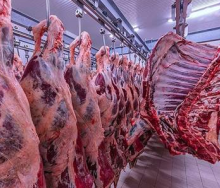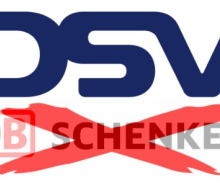Excise goods for own use
On 6 March the South African Revenue Service (Sars) published for comment draft rules under sections 63 and 116 to the Customs and Excise Act, 1964, to Schedule No 8 to the Act, and DA forms, DA104, DA105 and DA185.4B2 to the Act, relating to stills and the manufacture of excise goods for own use by the manufacturer thereof; Form DA 104 ‘Application to own, possess or keep a still’, Form DA 105 ‘Application by an agricultural distiller for a licence to distil spirit’ and Form DA 185.4B2 ‘Licensing Client Type 4B2 – Manufacturing Warehouse’. The draft rule amendments to the Act address the stills capacity that is allowed, records to be kept by stills makers and importers, and obligations upon receipt of unmarked stills. Amendments to relevant items in Schedule No 8 to the Act relate to stills; the proposed and draft forms DA104 and DA105 to the Act are proposed. The amended draft form DA185.4B2 to the Act provides for the registration of such manufacturers of excise goods for own use. Comment is due by 20 March.
HS explanatory note amendment
Sars on 8 March announced amendments in terms of Act 1964 to the explanatory notes to the Harmonised Commodity Description and Coding System (HS) in accordance with Amending Supplement Numbers 1 and 2 issued by the Customs Co-operation Council (CCC). The CCC has officially changed its name to the World Customs Organisation (WCO). The amendments are effective from 9 March.
Sacu and WCO sign Cooperation Agreement
The Southern African Customs Union (Sacu) and the WCO signed a Cooperation Framework Agreement for the implementation of the WCO- SACC connect project on 5 March at the WCO’s headquarters. Sacu and WCO have established and maintain a long-standing partnership under the framework of the WCO-Sacu Connect Project that focuses on IT connectivity; risk management and enforcement; trade partnership; and legislative framework. Significant progress has been recorded in all the above-mentioned areas of focus, which amongst others include the conclusion of the: (a) Regional Customs Risk Management Strategy and three joint enforcement operations targeting illicit trade in tobacco, alcohol, and textile and clothing industry, respectively; (b) Regional IT Connectivity Framework to facilitate automated data exchange between the Sacu member states; (c) Regional Training Manuals for the Preferred Trader Programme; and (d) Regional Manuals to guide traders and customs officials on the implementation of the Preferred Trader Programme. Sacu executive secretary, Paulina M Eligo, commented: “The signing of the Cooperation Framework Agreement signals the commitment by the WCO and Sacu to continue working together to strengthen the relationship and partnership in order to derive tangible benefits that will improve the trading environment in Sacu.”
Duty Calls’ Watchlist
The National Department of Transport has called for comment on: • The Revised White Paper on National Transport Policy (RWPNTP) by 30 March; • The proposed increase in the customs duty on phosphoric and polyphosphoric acids by 16 March.













